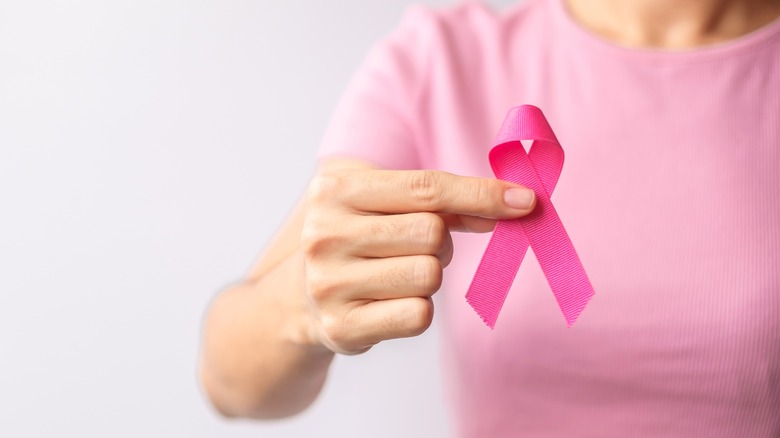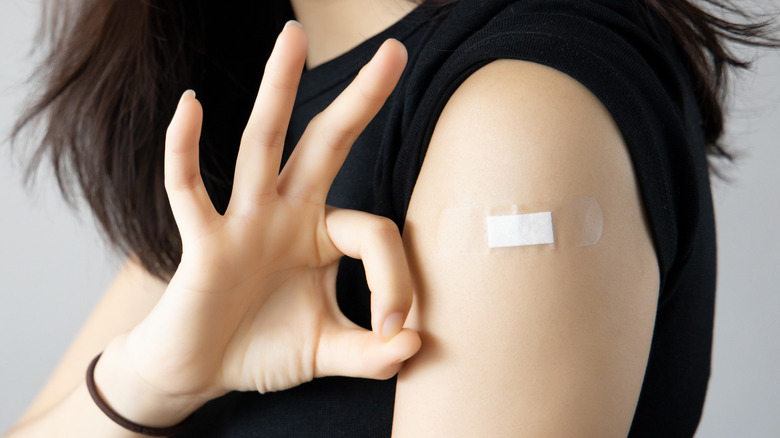What You Need To Know About A New Experimental Vaccine To Prevent Breast Cancer
According to The National Cancer Institute, breast cancer is officially the most common type of cancer there is. In 2022, breast cancer is projected to have over 290,000 new cases in the United States, with the death toll reaching over 43,000. To compare these numbers, other cancers, like thyroid cancer and liver cancer, have about 40-45,000 new cases per year, while lung and prostate cancer both cause over 200,000 per year.
And while these numbers are scary, they only get more concerning. In 2020, 2.3 million women globally were diagnosed with breast cancer and an estimated 7.3 million women currently have it or were diagnosed in the last five years. Unfortunately while many cancers have risk factors, the biggest risk factor of breast cancer is simply being a woman. In addition, breast cancer often shows no symptoms until it is too late. And while there have been some advancements due to early detection practices, there is still no cure for breast cancer and not much has changed in regards to treatment and prevention, per World Health Organization. But a new DNA-based vaccine may be the answer we've been searching for.
The breast cancer vaccine could help treat one form of breast cancer
According to Medical News Today, there are many different types of breast cancer, meaning that a treatment that works really well for one patient may not work at all for another. This variety in the disease makes it hard to find a blanket treatment to help not only treat breast cancer but prevent it altogether.
Recently, phase one of a human trial for a DNA-based vaccine was completed, showing promising results. According to the JAMA Network, who published the study, "the vaccine created a strong immune response to proteins that cause tumors to grow aggressively." This vaccine specifically treats HER2 -positive cancers, which tend to be more severe than other types of breast cancers and makes up about 30 percent of cases. The vaccine creates an immune response to the HER2 protein, allowing the body to fight it.
In the study, the only reported side effects included flu-like symptoms and soreness at the injection, per Axios. Researchers are currently looking for participants for phase 2 of the trial.

